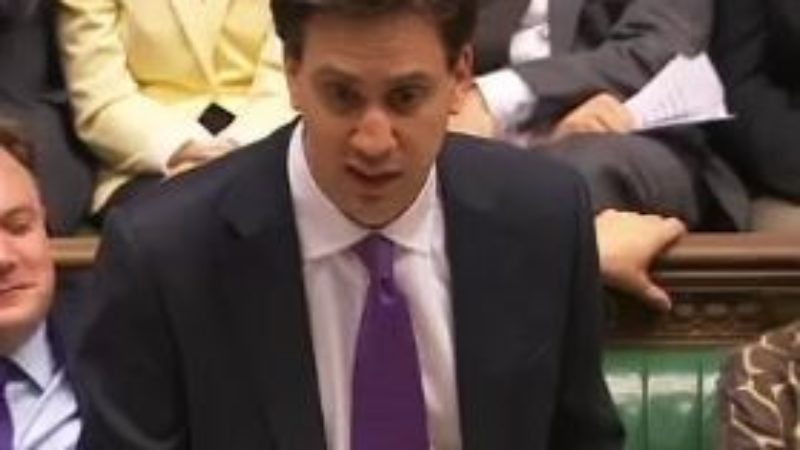
Once Tory Conference is over and done with, Ed Miliband will embark on a series of events around the country designed to explain his “One Nation” vision outside of the cynical and claustrophobic world of Westminster. He’ll be trying to explain how Labour is the party for the whole country, but is different from either “old” Labour or “New” Labour. That’s a big enough task on its own.
Of course what Miliband may find when he heads out across the country is exactly what his fictional counterpart Nicola Murray faced in The Thick Of It – travelling around the country being told how much people hate you in a variety of different regional accents. The reputation of politics is in the toilet. Politicians are immediately distrusted. Anyone who tries to turn this around is on a fools errand. Fortunately Miliband realises this is an issue.
So he’s decided he wants to fix it.
First he said he wanted to changed the media. Then he wanted to make capitalism “responsible”. Now he wants to make politics relevant to people’s lives again, and prove that there is a point to it. You can’t fault the ambition of the guy can you?
Much of what Labour is trying to do at the moment – at least from a leadership level – needs to be seen through the prism of “the crisis of politics”. General Secretary Iain McNicol told Labour conference last week that “The political crisis we face is as big as the financial crisis”. And he’s right. Turnout has plummeted over the last twenty years, politics is seen as the actions of the self-interested, for the self-interested by the self-interest, and the incentive for the vast majority to get involved – even in the most tangental way – has diminished. Low turnouts are not only bad for politics of course, they’re bad for Labour too.
The marginalised and the poor are less likely to vote than those who wish to preserve their place in the system.
So can Ed Miliband save politics on his own? Almost certainly not. Even Ed would probably acknowledge that he is an exemplar of the political class in which he has spent much of his life. But it is to his credit that he is going to try. I’ve always believed that the only party capable of cutting through the cynicism around politics and making people sit up and take notice again was the Labour Party. The problem is it will probably take the whole party – all of us – to turn this around. By having conversations in our communities, by engaging with those around us, and by slowly but surely rehabiliting politics as a noble cause, rather than a venal one.
And we’ve got less than three years to get that right.




More from LabourList
‘As metro mayors gain power, Labour must tighten political accountability’
Letters to the Editor – week ending 22 February 2026
‘The coastal towns where young people have been left behind by Whitehall’